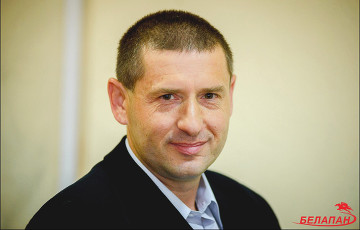Pstichkin’s Case: Prison Paramedic Sentenced To Three Years In Penal Colony
10- 21.10.2016, 15:37
- 13,237

The guilty in the death of a prisoner medical assistant has also been forbidden to be engaged in professional activities for five years.
Aliaksandr Krylou, a paramedic of the Minsk remand prison № 1 medical unit, where in 2013, 21-year-old citizen of Minsk Ihar Pstichkin died, was sentenced to three years of imprisonment in a penal colony under the conditions of settlement, BelaPAN reports.
Krylou was found guilty of professional misconduct (Part 2 of Article 162 of the Criminal Code), which led to the death of the convicted Pstichkin. He was also forbidden to be engaged in professional activities for a period of five years.
The verdict was announced in the court of Maskouski district of Minsk by Judge Sviatlana Bandarenka on October 21. Thus, the court upheld the prosecutor's position, who was demanding that punishment.
The preventive measure against Krylou remains the same – he is under house arrest.
The paramedic told reporters that he would appeal the verdict, but refrained from comments.
On October 17, Krylou said in his final speech, that he did not consider himself guilty. “I can assume that there was no causal connection between my actions as a health care worker when performing professional duties and the consequences. That's why I do not plead guilty and ask the court to exculpate me,” – he said.
The tragedy occurred more than three years ago. In May 2013, the court of Zavadski district of Minsk sentenced 21-year-old Ihar Pstichkin to three months of administrative detention for driving a car, being revoked his driving license. In late July, the young man was sent to the jail № 1, and after a while the isolation ward staff told his relatives, that Pstichkin died of a heart attack on August 4.
Shortly after the incident, the investigation explained why Pstichkin was in the medical unit, where later he died. It was reported, in particular, that the young man was hospitalized because he had growing signs of acute mental disorders: hallucinations, delusions, denial of food and drink, the mania of persecution. The young man had allegedly systematically drunk alcohol and smoked tobacco mixed with narcotic and psychotropic substances.
At the end of September 2013, a case against prison paramedic Aliaksandr Krylou was opened in the Minsk Department of the Investigative Committee, he was suspected of improper performance of professional duties, which resulted in Pstichkin’s death. The mother of the deceased Zhana Pstichkina was recognized as the victim in that case.
In late December 2014, the IC closed the case, and in early 2015, the investigators announced that the young man had allegedly suffered from syndrome of overlapping substance and alcohol abuse, and when he started serving the sentence, he had a severe mental disorder due to the withdrawal state. This caused impairment of consciousness and hallucinations, and Pstichkin was hospitalized into the prison medical unit and fixed with soft straps to the bed, in order not to hurt himself. According to the IC, Pstichkin died of an acute cardiovascular failure, which occurred on the background of the developed symptoms. The case against Krylou was closed, as the “violations of the job descriptions” on the part of the medical staff “did not have causal connection with the consequences.”
Pstichkin’s relatives did not agree with the investigation and filed a complaint with the prosecuting authorities. Over one and a half year the investigation was several times renewed by the Prosecutor General's Office and closed by the decision of the Investigative Committee. Last time the General Prosecutor's Office canceled the decision of the IC and set the matter for hearing in mid-2016.
Almost immediately after his death, Pstichkin’s relatives started to insist on a criminal investigation over the beating of the young man, as numerous extensive bruises had been found on his body. The investigating authorities refused, stating that there hadn’t been any cases of violence, using physical force and special means against Pstichkin. However, the investigation took into account Pstichkin’s injuries this year, but refused to open a case in that regard, explaining that “it has been not possible to find out the origin of the bodily damage in the course of the criminal investigation.”









